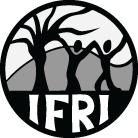Studying Poverty, Agricultural Risks and Coping Strategies- Documents and Links
Download the Project Proposal.
If you would like us to add your case on coping strategies used by rural producers to our database, you can do so by completing the data collection instruments we used to create the database. Completing these forms should not take more than 2 hours. Instructions for completing the forms are available through the “data coding manual” link on this page.
Data Collection Instruments (zip file):
Worksheet A– For determining the different forms to be filled out for the case
Form C– For coding general information about the study
Form L1 For coding information about livelihoods of the studied group of people
Form A1-For coding information about the coping and adaptation strategies identified in the study
Form I1-For coding information about the institutions described in the study
Form LII– For representing connections among different institutions
Form LIA-For representing connections among institutions and coping strategies
Form LIL– For representing connections among institutions and livelihood strategies
Form LAL– For representing connections among livelihoods and coping strategies
Data coding manual– The coding manual describes the different questions in all the coding forms and provides information about how information about each question is to be assessed and interpreted to enable consistent coding of information from different studies.
Project database (the database is currently accessible only through a password protected site)- The data will become openly available in May2014. If you are interested in getting access to the data, please write to arunagra@umich.edu.
Download the presentation at the Gates Foundation organized grantees meeting
Next steps: We have launched a new field-data-collection-based project on the role of watershed management interventions in helping address water scarcity in regions that are likely to suffer greater water stress as a result of climate change. This project is supported by USAID funds through the Engility Corporation. Link to the new project proposal.
News
IFRI Special Issue Collaboration
(17/09/2016)
FLARE Announces Keynote Speakers

